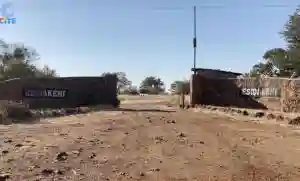National University of Science and Technology (NUST) lecturer Dumisani Madzivanyati on Tuesday approached the Supreme Court challenging a High Court judgment which ordered his eviction from a portion of Kershelmar Farm, also known as Esidakeni Farm, in Nyamandlovu.
The farm is co-owned by Siphosami Malunga who is the son of the late nationalist Sydney Malunga and Open Society Initiative for Southern Africa (Osisa) director, businessman Charles Moyo and Zephania Dhlamini, a scientist also working at NUST.
Madzivanyati was allocated 50 hectares on the farm following a December 2020 notice published by Lands minister Anxious Masuka, which listed the farm measuring 553 hectares for compulsory acquisition under section 72(2) of the Constitution.
The trio approached the High Court through their lawyer Thabekhulu Dube of Ncube and Partners seeking a spoliation order directing Madzivanyati and others to stop interfering with their operations on the farm.
High Court judge Justice Martin Makonese ruled in their favour, giving Madzivanyati 24 hours from the date of the order to restore to the applicants’ possession of all their farming equipment including all irrigation pipes and machinery.
But in a notice of appeal filed at the Supreme Court on Tuesday, Madzivanyati through his lawyers Tanaka Law Chambers argued that the High Court grossly misdirected itself by ruling in favour of the trio. Said Madzivanyika in his grounds of appeal:
The court a quo grossly misdirected itself at law in affording spoliation relief to respondents in relation to land that had been gazetted and compulsory acquired by the government and offered to the appellant.
The court a quo grossly misdirected itself at law and fact by rendering incompetent relief for the eviction of the appellant from land which he had never occupied and further had no title over.
Madzivanyati cited Kershelmar Farms, Dhlamini, Moyo and Malunga as first to fourth respondents, respectively in his appeal. He said:
The court a quo grossly misdirected itself at law and fact in finding that the respondents had the requisite locus standi to prosecute the application based before it.

